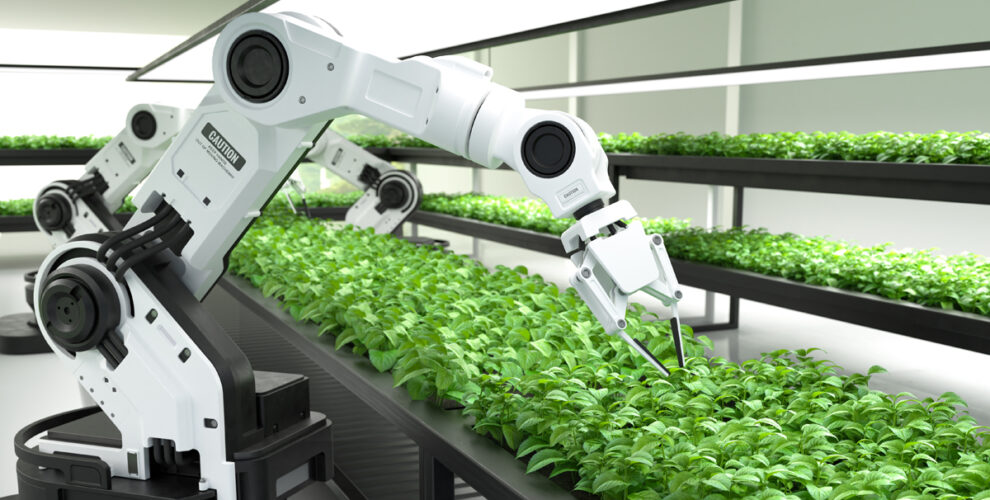The advancement of food science to continuously improve existing practices and develop new ones, which requires theoretical and technological innovation, remains a major obstacle to the future of food. Food engineering is one of the fast-moving fields where you need to complete a degree in the best engineering college in Coimbatore or other universities.
Remote sensing, satellite and sensor-based technologies, as well as microbiome tools, are crucial platforms for ensuring food security, according to studies that have been conducted. So, it is necessary to see the development and progress in food tech. However, here are the few techs that are being used in the food industry. Let’s discuss this in detail.
Start From The Base, Why Robotics In Agriculture?
The robot uses weather monitors, pulsed laser scanners, hyperspectral, high-definition, and thermal cameras as it moves between the crop rows to record phenotypic data like each plant’s stem diameter, height, and leaf area as well as environmental data like soil temperature and moisture content.
The grower’s computer receives the data immediately from the robot, which stores it in its onboard computer. The data are used by scientists to estimate the biomass yield for each plant and the entire plot, develop predictive models for the growth and development of the plants, and create a three-dimensional reconstruction of each plant. So, it is always a great opportunity for students who graduated in biotech engineering.
Reasons for use of techs in agriculture:
In the coming century, agriculture will need to produce sufficient quantities of fine chemicals, feed, fiber, fuel, and food to meet the demands of an expanding global population.
In addition to dealing with climate change, the increased risk of drought and high temperatures, heavy rains, degradation of cultivable land, and depleting water resources, agriculture will face multiple challenges in meeting these expanding human needs.
What kind of technology do you need?
- Phenotyping of Plants:
The quantitative and qualitative evaluation of a plant or plant variety’s characteristics in a particular environment is known as “plant phenotyping.” The biochemistry, physiology, morphology, structure, and performance of the plants at various organizational scales are among these characteristics.
Non-additive interactions between genetic and environmental factors, as well as between them, influence plant traits. Additionally, variation in one phenotypic trait—for instance, leaf characteristics—can cause variation in other plant traits—for instance, yield or biomass).
- Artificial Intelligence:
Different man-made reasoning (artificial intelligence) advances like profound learning, fluffy rationale, and hereditary calculations are effectively utilized to control phenotyping robots.
Different objects in images, such as crop rows, plant organs, soil, and obstacles, are frequently detected using deep neural networks (DNNs).
The use of AI is not limited to business and corporate companies, it is also much needed for the food industry. So, the graduates from the B. Tech food technology colleges in Coimbatore may be in high demand for these companies in food tech.
- Genome-specific personalizations:
Services in nutrition are expanding. It takes a gander at the job of bioactive food intensifies in an individual’s quality articulation while offering arrangements well defined for their science. In the future, food will be more of a customizable product than a generic one.
As a result, nutritional genomics can be used to develop crops or animal products with higher levels of healthful phytochemicals, eliminate the need for antibiotics in animal feed, and identify dietary signals that boost immunity.
- Don’t waste any more:
Each year, approximately 1.3 billion tonnes or more than one-third of the world’s food production is wasted. The United Nations Environment Programme predicts that by 2050, waste production around the world will increase by 70%.
The food industry is responsible for 25% of greenhouse gas emissions and wastes one-third of all food. According to the report, cutting down on food waste at home will gain traction in the future due to the fact that roughly half of the industrialized food waste occurs during the consumption stage.
- Automated kitchens:
Right now, robotic technology is exploding. Robots will not only cook our food and take our orders in restaurants of the future, as is currently the case. Automated innovation in the kitchen occupies substantially less room and time and reduces work expenses as well.
Benefits of these techs:
- Numerous new applications in plant phenotyping have emerged as a result of rapid advancements in robotic agricultural technologies in recent years.
- Also, there is enormous and developing interest from the plant reproducing and plant science networks in how these new advancements can be coordinated into exploration and rearing projects to improve phenotyping throughput and capacity.
- Mechanical phenotyping has progressed through cross-disciplinary joint efforts among designers and plant researchers.
- Career opportunities are one of the benefits where students of private universities in Coimbatore get a scope in developing ideas and research in this food tech.
The Future of alternative proteins:
It is always a threat to the future of food in terms of quality, climatic change and other natural factors. Whether for ecological reasons, diet inclinations or nourishment needs, purchaser reception to protein and the proceeds with the development of the plant-based industry are certain.
Furthermore, innovative technology is available to assist in overcoming the obstacles that stand in the way of reaching the scale required to satisfy the requirements of demanding customers and our planet.
In addition to defense, surveillance, and scientific exploration, the robust human-robot interaction devices, algorithms, and mechanical design of the underlying technologies that graduates from the Coimbatore colleges and universities can make use of. This will enable businesses to expand more rapidly.


